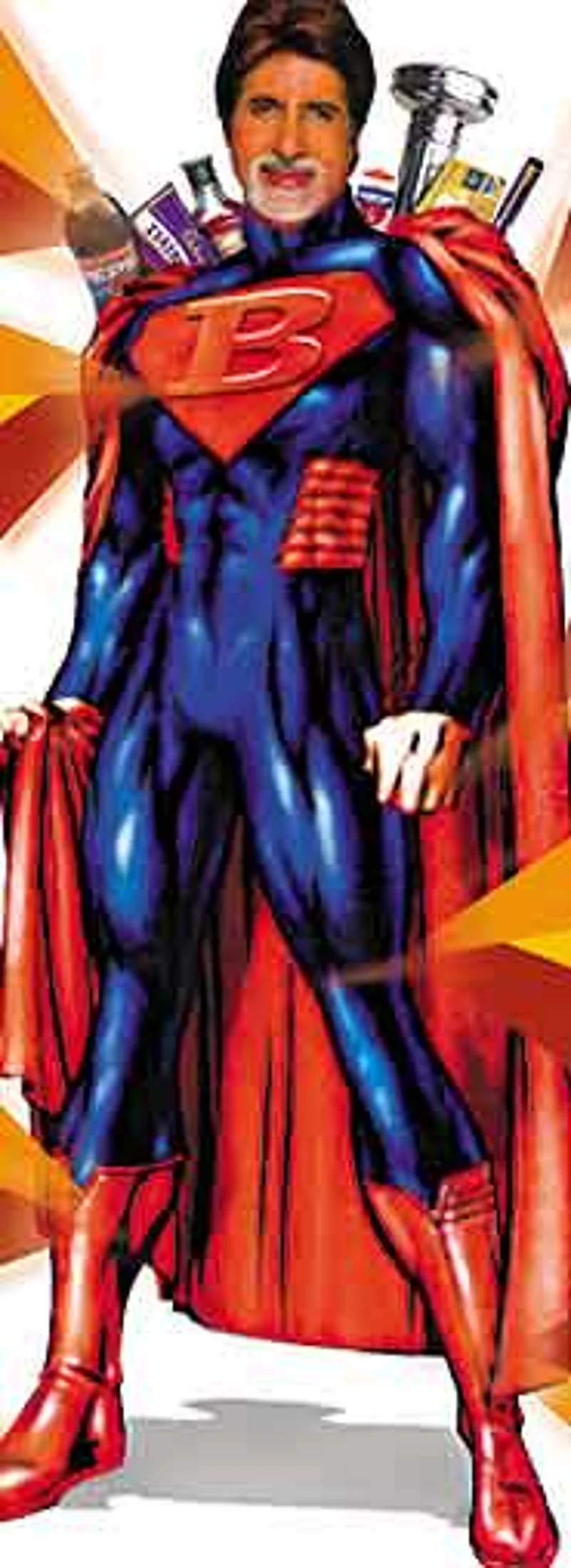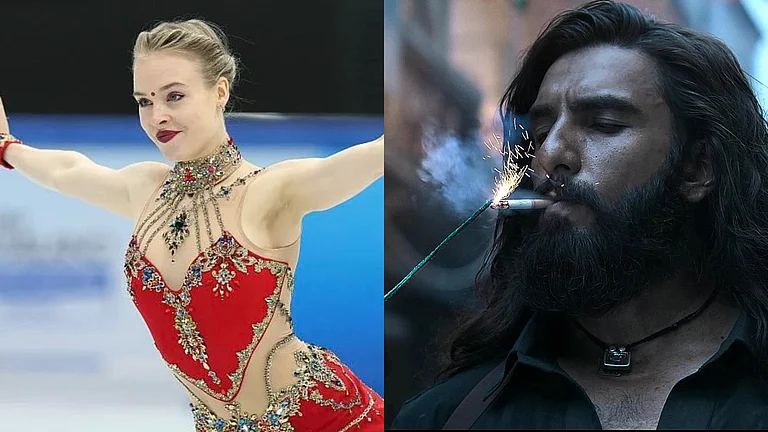Jain is just one in a line of 15-odd companies rushing to Bachchan for his stamp. In the past few months, Emami, Eveready, Singapore Tourism, Doordarshan and—most recently—Damas jewellery have gone goodwill hunting with the superstar. Others are jockeying close on their heels.
Amitabh Bachchan has turned out to be Mr Reliable for Indian advertisers. "When they come back to him again and again we sometimes wonder if Indian admakers are running run out of ideas. Then again, why not? Amitabh Bachchan is the most popular Indian alive, why not him?" asks Sunil Doshi, CEO Alliance Media and Entertainment, who handles Bachchan’s endorsement career. Says Sreekant Khandekar, director, agencyfaqs: "Marketers have undoubtedly gone over the top in using Amitabh. The demand seems insatiable, but the supply appears limitless too—he seems to agree to many of the proposals that come his way."

You name it and Bachchan has tried it all. Establish a brand (Damas), revive and reposition it (Eveready, Reid & Taylor), pull a brand out of trouble (Cadbury’s Dairy Milk chocolate), save it from stagnation (ICICI, Eveready) and expand the market for a brand category (Emami’s Navratna cool oil and Dabur Chyavanprash). And, best of all, give companies and brands the aura, respectability and credibility they need.
Why is a 60-plus man the necessary commercial icon for a billion-plus people?Sociologist Shiv Visvanathan believes that Amitabh at 60 isn’t old, he’s perennial, symbolising the same durability and trust that many of the brands he’s associated with seek to communicate. His vulnerability—the on-the-sets accident that almost killed him, the political defeats, the business failure—only increase his appeal to audiences that have followed his career for over 30 years. "He is the only icon who has run through a product’s life-cycle, having lived out the role of young struggler, successful angry young man to a mature actor," he adds.
You can surely see why Amitabh’s enduring appeal is pan-Indian. "We looked at icons across sport and films and found that he was the only one loved by people in every corner of the country," says Madhabi Puri Buch, senior general manager, ICICI Bank. His "six to sixty" appeal actually puts him ahead of all other icons. Adds Visvanathan, "He bridges Indian dualisms of town and country, local and diasporic."
Reid & Taylor communications head Tarun Joshi agrees: "He talks to India and Bharat, the masses and the classes with equal ease." Which is why their new campaign, a series of four ads made by filmmaker Priyadarshan, featuring Amitabh and Boman Irani (to be on air soon) shows Amitabh pitching it as affordable and close to Indian sartorial tastes.He is still perceived as Number One. "Any brand which wants to establish itself as a leader in its category has always benefited by associating itself with him, which is why he was an obvious choice," says Jayshree Mohanka, marketing head, Eveready Industries. Bachchan may be numero uno, but he is not the aloof and inaccessible star he used to be. The angry young man has mellowed over the years and is today friendly, approachable and trusted—someone you could buy your second hand car from. Which is why health companies like Emami and Dabur and financial companies like ICICI go for him.
Also, look at Bachchan’s credibility, even if it’s a conscious positioning. He turned his company AB Corp’s financial difficulties to his advantage—lived up to every financial commitment and worked very hard to pay back people (his present endorsement for Prasar Bharati is part of this pay-back scheme)."He is the most assured, sophisticated voice we have, so when he speaks, everyone listens," says Dr Sobhan Sarkar, national technical advisor on Polio. "The respect he commands is working wonders for the Pulse Polio campaign," he adds. It helps that most marketers are pleasantly surprised by his work style. "He’s expensive (Dabur paid him Rs 12 crore) but he’s gives you your money’s worth and both sides are happy about what they got when they leave the table," says an industry insider.
But is so much Amitabh a good thing for the brands? Don’t they risk losing the exclusivity of their relationship with the megastar when he pops up across channels, each time pitching a different product? Says agencyfaq’s Khandekar: "If so many campaigns with the same spokesperson are on air simultaneously, which brand association stays in the consumer’s mind is a good question."
Moreover, sometimes the choice may not be a good fit between the brand and the persona. And brands run the risk of being overwhelmed by Bachchan’s superprsence. Take Nerolac, for instance, which Bachchan promoted. Consumers missed the brand and perceived him to be selling Asian Paints, the leader in the category. "Bachchan is perceived as number one, which is why Asian Paints benefited from the commercials he actually made for Nerolac," says a veteran marketing pro.
Still, every company tracks the success of hiring a high-cost spokesperson. And it’s mainly been good value so far. Cadbury’s ensured that its can of worms is shut for some time and Pepsi is mostly out of the pesticide waters. Says the Dabur spokesperson: "The sales of the products endorsed, especially Chyavanprash, have grown significantly." On ICICI’s part, "customer salience points had been gained in a relatively shorter time with the campaign." Reid & Taylor’s stagnating sales soared, too.
No wonder they all want to bond with the best.


























